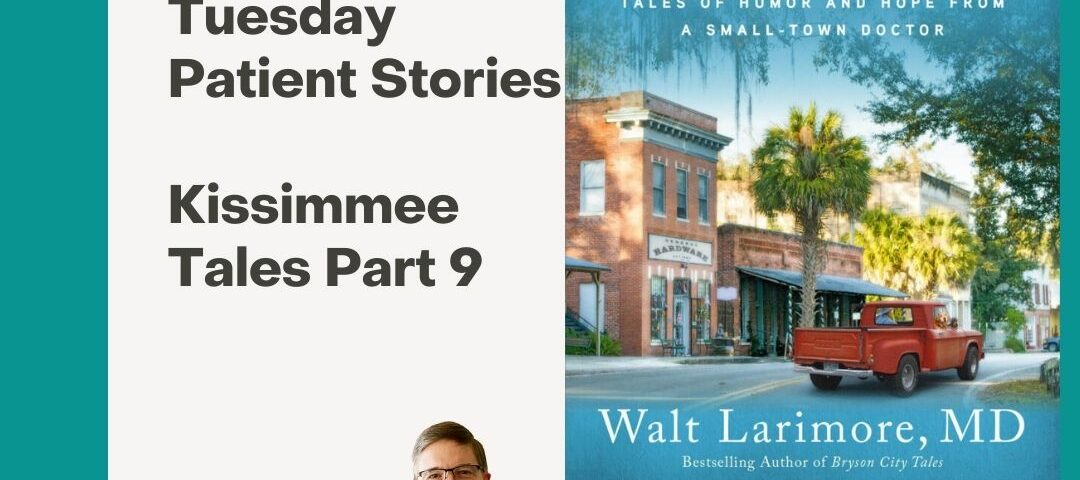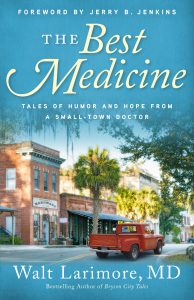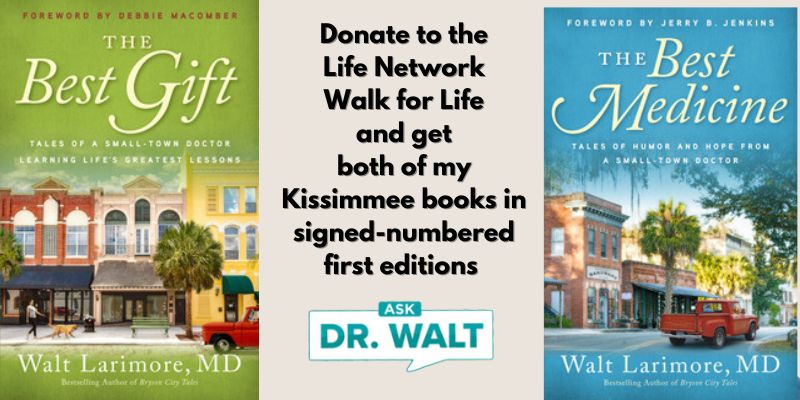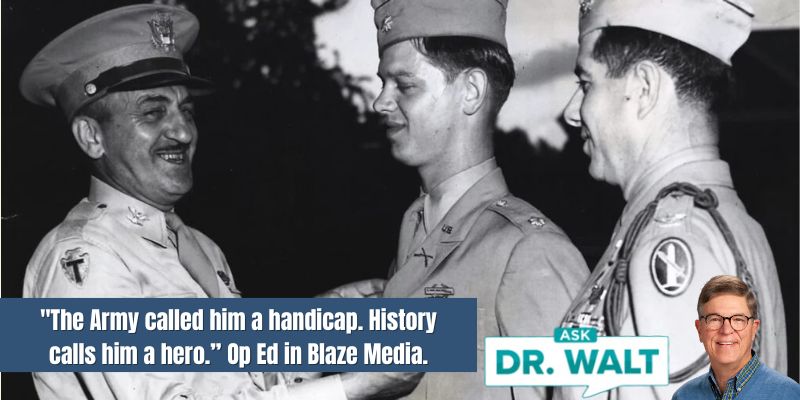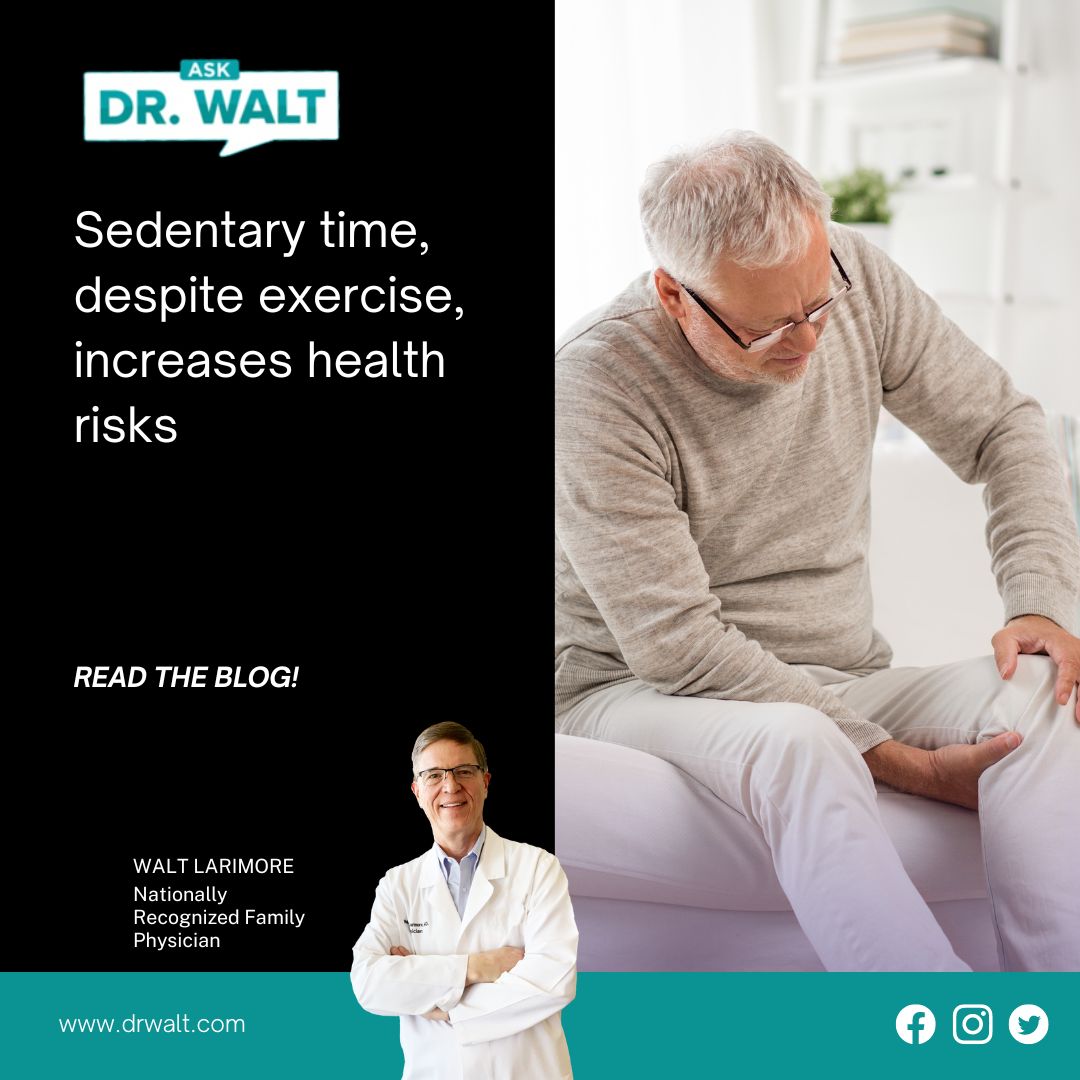
Sedentary time, despite exercise, increases health risks
October 3, 2022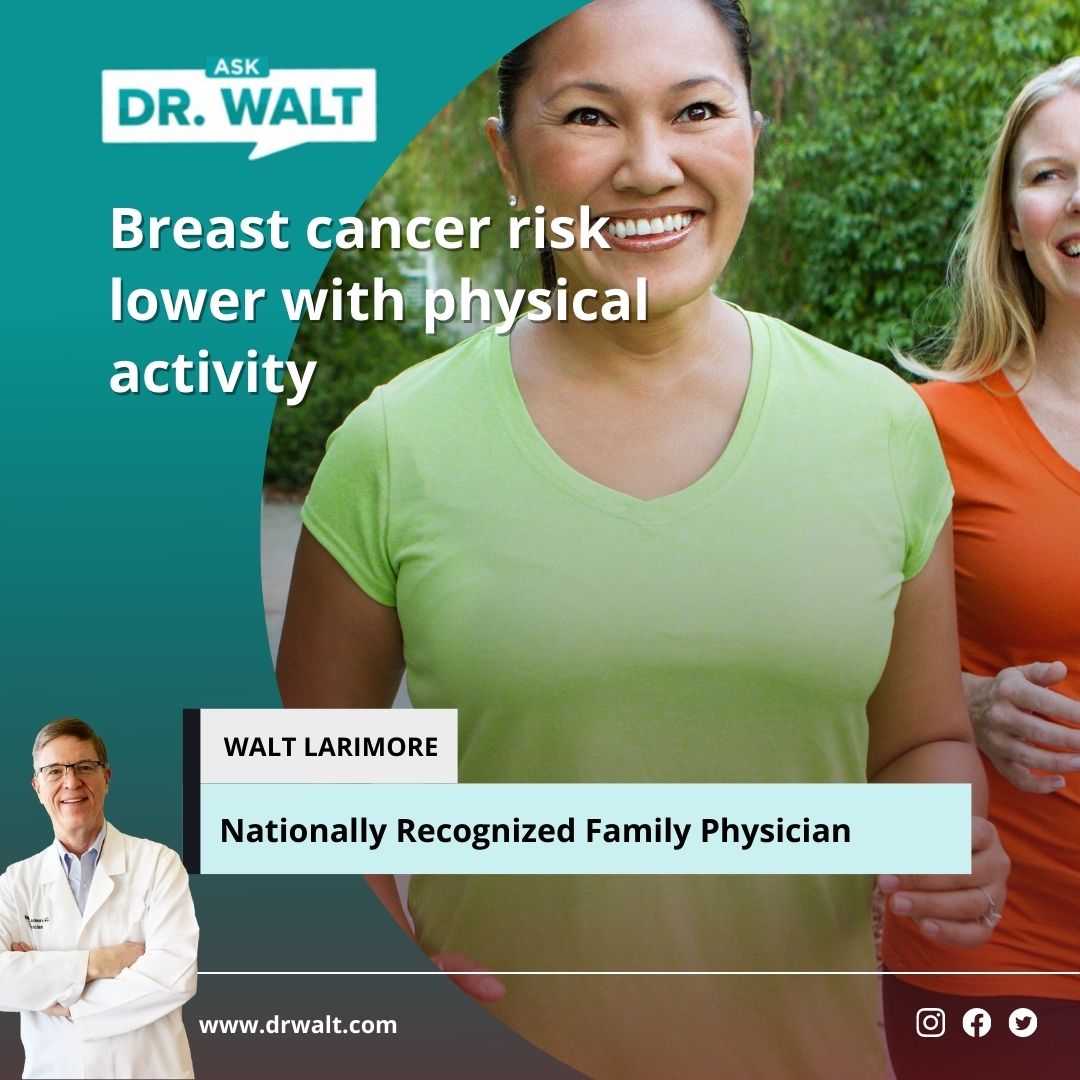
Breast cancer risk lower with physical activity
October 5, 2022For the next few months, I’m excerpting chapters from the first of two books about my early years in family medicine in Kissimmee, Florida – The Best Medicine: Tales of Humor and Hope from a Small-Town Doctor. I hope you, your family, and your friends will follow along and enjoy this trip back into the past with me and my family.
CHAPTER 6B – COWBOY COUNTRY
“I’ve never asked, and you’ve never mentioned it,” Dan said. “What’s your earliest memory as a boy?”
He thought a moment and then smiled. “I was riding the grasslands south of St. Cloud. Back then, this area was as much of a frontier as the wild west had been. It was as rare to see someone out there as I imagine it would be riding the prairies of Wyoming or South Dakota. We could ride for days seeing nothing but big ole pine and cypress forests, deer and ospreys until we located our cattle. In fact, most of Central Florida was open range. We could ride from here to the east coast, ’bout fifty miles east and ninety miles to the south to Lake Okeechobee at the start of the Everglades. No fences anywhere. The big lumber companies and other ranchers let us freely graze our stock on their land.” He took a swig of tea, took off his hat, wiped his brow, and then rubbed the cold glass against his forehead. A look of sheer bliss settled across his face, and then he let out another laugh. “Just remembered riding a small mule across a palmetto scrub range when I was a tot—following Daddy, one of my uncles, and my older brother Slim as they rounded up cattle.”
“Why a mule?” I asked.
“I was just four of five, and we Partin boys didn’t get our own horses until we were six or seven. Also, Daddy felt I was too small to handle a horse. But I didn’t mind as long as I could ride the range with the others.”
“You rode that mule for a couple of years, didn’t you?” Connie said. “What was his name? I forget.”
“Jack.”
Connie laughed. “I remember now. He was still alive when we were kids. Had mighty long ears and would bite anyone who tried to touch him.”
“Jack toughened me up. I loved that little guy. But for me and my brothers, being invited to take part in the cattle drives showed a measure of acceptance as a working cowboy. Nothing made me happier than being able to saddle up and ride out with ’em. We boys were raised out there in cattle camps. I slept better on the ground in a bedroll than I did in any bed. We’d rise before the sun and not settle down until after it set. Lived days and sometimes weeks at a time on coffee, beef, beans, and biscuits. It was hard, hard work, but I wouldn’t trade it for nothing.”
“Geech is a proud cattleman and horseman,” Dan said. “He doesn’t mind bragging about his family, his ranch, and his native state.”
“Doc,” Geech said, leaning toward me, “it ain’t bragging if’n it’s a fact.” He settled back, laughing again. “We’re in the top ten states in the country producing beef cattle. Heck, we’re the largest cattle-producing state east of the Mississippi River, and we have the largest rodeo east of the ‘Old Muddy.’ Osceola County is one of the biggest ranching counties in the state. The weather can be challenging from time to time. But the cattle and us cowboys, like them palm trees there on our shore, we all kinda flourish in it.”
Dan added, “New folks are often heard around here saying, ‘Don’t like the weather? Wait fifteen minutes.’ Most of us old-timers say, ‘Don’t like the weather? Move!’”
They all laughed. Geech leaned toward me again. “If you like Kissimmee, and if you like us, stay—become one of us. Become, if not a cowboy, at least a local!” He chuckled. “Like I tell my boys, ‘Don’t ask folks where they’re from. If they’re from Kissimmee, they’ll proudly tell ya so. And if they’re not, you don’t want to embarrass ’em!” He and Dan laughed hilariously.
As I sipped my tea, I realized that in my short time here, I had come to sense a palpable friction between the old and the new, the insider and the outsider, the town and the country; all accompanied by the timeless fluctuations in temperature and temperament. I was going to have to learn to navigate a cool to blistering, humid to oppressive, dry to sticky, and calm to turbulent climate and personalities. We had experienced the same in Bryson City and thought we might escape it here. But I was coming to see this was small-town America, and this would be my family’s norm again. Just like the rural Smokies from which we had come, the more quickly we could transition from being newcomers, the better!
“Mr. Partin—”
“Please!” he interrupted. “Just call me Geech.”
“Geech, I have a question. How long does it take to become local here in Osceola County?”
He scrunched his sun-weathered face, lifted his old cowboy hat with a calloused hand to wipe his gleaming brow, and growled, “I need to know your grandpappy.” He put his hat on and added, “Real good.”
I suspected he was right. After saying our goodbyes, Dan drove down the long country road that served as the Partins’ driveway. I was lost in my thoughts. The juxtaposition of their old traditions, anchored in faith and family, and the new customs my family was just beginning to create seemed daunting. I felt nervous about how we’d be received, how we’d settle in. I was jealous of what they had yet anxious to set down new roots of my own. Out of the tears and torment of our family tragedy in North Carolina, in which our marriage and our faith had been tested by fire, arose new opportunities—a new family, a new practice, a new community life—all ready to commence.
Dan reached over and put his hand on my shoulder. “You and Barb are gonna do just fine. I know it. You’ve got each other, and you’ve got the Lord.”
I smiled as the evening coolness drifted through the truck.
“And,” he added, “you’ve set in with one of the best docs around. You’ve got Boots and me on your side. And, I suspect, Geech and Connie. It bodes for a promising start.”
I leaned back as we bumped along the dirt road, the truck headlights illuminating the long road ahead. I was looking forward to starting afresh. Maybe the pain and tears are finally behind me, I thought.
Suddenly the truck lurched and forcefully bounced. “Wasn’t expecting that!”
Dan laughed. “Never know when you’re gonna hit a pothole! Always show up when you least expect ’em.”
As my family began to settle into this remarkable environment, Kissimmee became not only our new family home but the laboratory in which me and my family’s spiritual faith developed and matured at an exponential rate. Just like a child or a plant that seems to “shoot up overnight,” my time in the greenhouse—some would say hothouse—of rural Central Florida was to be a season in which my proficiency as a physician, my capacity as a husband and father, and my progression as a man of faith would increase. At the same time, I was to experience some severe pruning—some deep potholes. The next few years would change my family and me forever.[i]
i] For this chapter, I refreshed my memory with the following: (1) an interview with Geech and Connie’s daughter, Kathy Baker; (2) “Florida Cattle Ranching,” Florida Memory, tinyurl.com/y62vl63x; (3) information provided by Dan Autrey III; (4) Jim Robison, “Sharing Tales of Early Settlers will Preserve St. Cloud’s Past,” Orlando Sentinel, April 21, 2002, tinyurl.com/qvbhnax (subscription required); and (5) Rowland Stiteler, “The Last of the Cowboys: Geech Partin and the Partin Clan,” Orlando Sentinel, November 23, 1986, tinyurl.com/yywpg96o (subscription required).
TO BE CONTINUED
This excerpt of The Best Medicine: Tales of Humor and Hope from a Small-Town Doctor is provided with the permission of the publisher Baker/Revell. You can learn more about the book or purchase a copy here.
© Copyright WLL, INC. 2022.

